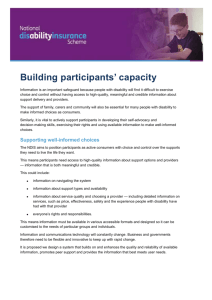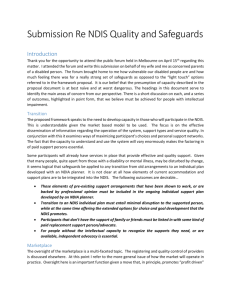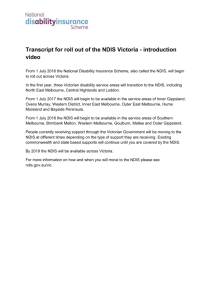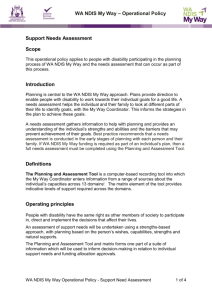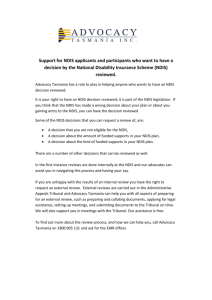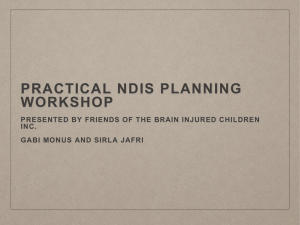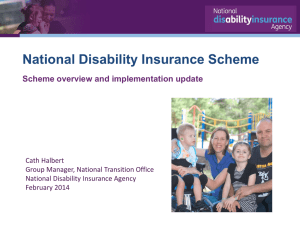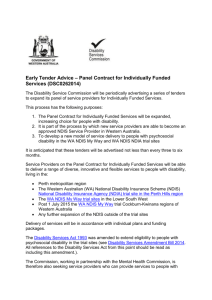Support clusters and price framework
advertisement
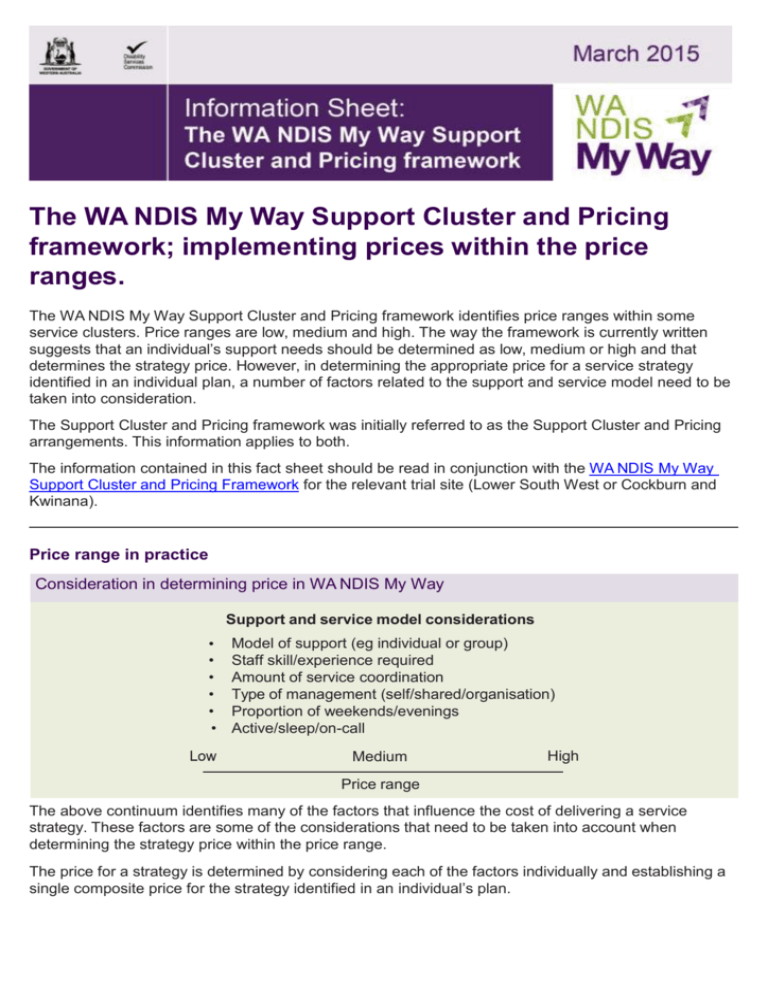
The WA NDIS My Way Support Cluster and Pricing framework; implementing prices within the price ranges. The WA NDIS My Way Support Cluster and Pricing framework identifies price ranges within some service clusters. Price ranges are low, medium and high. The way the framework is currently written suggests that an individual’s support needs should be determined as low, medium or high and that determines the strategy price. However, in determining the appropriate price for a service strategy identified in an individual plan, a number of factors related to the support and service model need to be taken into consideration. The Support Cluster and Pricing framework was initially referred to as the Support Cluster and Pricing arrangements. This information applies to both. The information contained in this fact sheet should be read in conjunction with the WA NDIS My Way Support Cluster and Pricing Framework for the relevant trial site (Lower South West or Cockburn and Kwinana). Price range in practice Consideration in determining price in WA NDIS My Way Support and service model considerations • • • • • • Model of support (eg individual or group) Staff skill/experience required Amount of service coordination Type of management (self/shared/organisation) Proportion of weekends/evenings Active/sleep/on-call Medium High Price range The above continuum identifies many of the factors that influence the cost of delivering a service strategy. These factors are some of the considerations that need to be taken into account when determining the strategy price within the price range. The price for a strategy is determined by considering each of the factors individually and establishing a single composite price for the strategy identified in an individual’s plan. Process A strategy unit price within the support cluster range is offered by a service provider and must be endorsed by a My Way Coordinator. A My Way Coordinator endorses an individual’s plan based on the supports and services that are considered as ‘reasonable and necessary’. All parties need to consider the relevant factors that influence the price of the strategy chosen by an individual. Considerations Model of support – is the support one to one or is the support shared with one or more individuals who are paying for the same service strategy? If the support is shared, it is likely that the price will be towards the lower end of the range. Skill and experience – does the strategy require a support person with specific skills or training? This can affect wages and training costs and hence price. Amount of service coordination – does delivering the identified service require many different support people or frequently changing support persons to deliver and manage the strategy? This may affect recruitment and training; and, while general service coordination is included in the unit price the intensity of coordination could influence the price. Type of management – does the individual or their family wish to self-manage or share the management of their plan? The degree to which an individual or their family takes responsibility for arranging and managing their service delivery arrangements can influence the price. Time – are the strategies delivered at times that may attract penalty rates, such as over weekends or evenings? Is the support person required to be active or on-call? These factors can affect the price. Future – there is a commitment to monitor and review the WA NDIS Support Cluster and Pricing Framework and the information contained in this sheet will be incorporated into the review. Further information • Visit: www.disability.wa.gov.au • Email: MyWay@dsc.wa.gov.au • Call: 1800 996 214 • TTY: 9426 9315 • Am I Eligible?: This online tool allows people to carry out an initial eligibility assessment. Go to www.disability.wa.gov.au and click on Am I Eligible? It also provides contact details for State Government disability services throughout WA.

